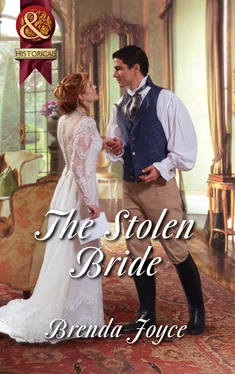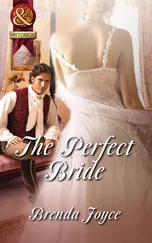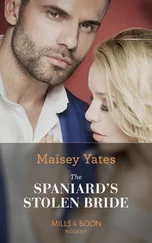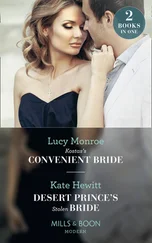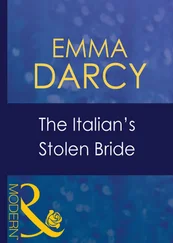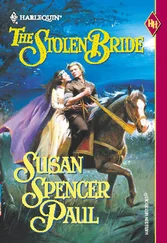She sighed. “I will try to be humble, Ty. And you are right. I do not need a scandal of my own making now. I will steal into the house so no one sees me. Are the gentlemen up and about?”
“A large group is intent on fishing today, so yes, they are in the breakfast room. I suggest you go in through the ballroom. The ladies remain asleep, of course, except for my wife.” His soft smile was instantaneous.
She quickly envisioned her escape into the house, and her planning calmed her. “Thank you, Ty. Thank you for your pearls of wisdom.” She stood. “You have soothed me. I have come to my right mind. I feel much better.”
Tyrell kissed her cheek. “I happen to believe you are making the right decision. I think, in time, your love for Peter will grow. I think there is every chance that, once you bear his children, there will be no regrets. You deserve all life has to offer. Sinclair can give you that.”
“Yes, you are right. You are always right, in fact.” She grinned at him. It never hurt to flatter the heir to the estate.
He laughed. “My wife would disagree. You need not be obsequious, my dear.”
“But you are the wisest of all my brothers! Can you take Apollo back to the stables for me?” she asked in the same breath.
“Of course.”
Eleanor hugged him and strode toward the house, looping past the west wing so she could take the terrace to the ballroom.
Tyrell remained still, watching her. His smile faded. He had been terribly fortunate in his own life to avoid a prearranged match and to marry for true love. Eleanor remained as deeply in love with Sean O’Neill as she had ever been—it had never been more obvious. These past few months she had been acting a charade. He could not help himself now, for his wife had made him a romantic. He wished that circumstances were different—he wished she were marrying where her heart lay. But it was not to be, and Sinclair was offering her a future. Even if Sean did return, he could offer her nothing now.
He tensed. He had just kept the truth from his sister and he dearly hoped that in doing so, he had done what was right.
For last night, well past the conclusion of the supper party, Captain Brawley, currently in command of a regiment stationed south of Limerick, had requested a private audience with the earl. Tyrell had attended, as was his right. And the young Captain had informed them that Sean O’Neill’s whereabouts had been discovered.
Shocked, they had learned that Sean had been incarcerated in a military prison in Dublin for the past two years. Their disbelief and horror growing, they were told that Sean had been charged with and tried for treason. There was no explanation for his lengthy incarceration or the failure of the authorities to hang him, much less to bring the facts forward to the family. Then Brawley had announced the most shocking news of all. Three days ago, Sean had taken the prison warden hostage and he had escaped.
Sean O’Neill was a fugitive now, wanted by the authorities, a bounty on his head.
And at any moment, Tyrell expected him to appear at Adare.
CHAPTER TWO
EVERYONE KNEW that hell was blazing fire. Everyone was wrong.
Hell was darkness. It was darkness, silence, isolation. He knew—he had just spent two years in it. Three days ago, he had escaped.
And because the light of day hurt his eyes, because everyday sounds startled and frightened him, because he was being pursued by the British and he did not intend to hang, he had been hiding in the woods by day and making his way south by night. He had been told that there were men in Cork who would help him flee the country. Radical men, men who were traitors, too, men who had nothing to lose except for their lives.
It was almost dawn. He was covered with sweat, having traveled from the prison in Dublin to the outskirts of Cork in just three nights by foot. Once he had realized he might never be let out of the black hole that was his cell, he had started to use his body to keep it strong, beginning to plan his escape. Exercising his body had been simple—he had found a ledge on the wall and he had used it to hang from or to pull up on. He had used the floor in a similar manner, pushing up until his shoulders and arms ached. He had tried to keep his legs strong by practicing fencing exercises, concentrating on lunges and squats, but his body was not used to walking or running or covering any distance at all. The muscles he had not used for two years now screamed at him in protest and pain. His feet hurt most of all.
Exercising his mind had been excruciatingly difficult. He had focused on mathematical problems, geography, philosophy and poems. He had quickly realized he must keep his mind occupied at all times—otherwise, there was thought. Thought led to memory and memory led to despair and worse, to fear. Thought was to be avoided at all cost.
In his hand, he carried a burning torch. The torch was his greatest treasure. Having been immersed in almost total darkness for two years, a source of light was as important to him as the air he breathed, or as his freedom. The torch felt as weighty in his hand as a king’s ransom. Sean O’Neill looked up at the sky as it turned a dark, dismal gray. He no longer needed the light if he dared to go on. The sole other survivor from the village of Kilvore had instructed him to proceed to a specific farm as swiftly as possible, and he knew he must go on, somehow transcending his fear. He carefully extinguished the torch.
The Blarney Road he was on was made of rough and rutted dirt, and led into the town’s center. Somewhere up ahead was the Connelly farm. He had been assured that there he would find comfort and aid.
His heart beat hard and heavily as he walked through the woods, not daring to use the roadway but keeping parallel to it. From the width of it and the wheel ruts, he saw that it was well used. In the three long nights he had been traveling, he’d avoided all roads and even dirt paths, keeping to the hills and the forest. He’d heard troops once, but that had been a hundred miles north of where he now was. Only hours from Dublin, he’d heard the cavalcade of horses and had peered out from some high rocks on a hilltop. Below, he’d seen the blue uniforms of a horse regiment. The last time he’d seen cavalry, two dozen men had died—as had innocent women and children. In real fear, he had melted back into the woods.
The sky began to turn a pale pink. Today, clearly, it would not rain. His tension began, creeping over him, a companion both familiar and despised. But he was too close to run to the ground now. He would suffer the daylight, no matter what it cost him. Already the sounds of an awakening forest were making him start and jump, the birds beginning to sing merrily from their perches in the branches overhead. As had been the case each morning since his escape, their song brought tears to his eyes. It was as precious, as priceless, as the unlit torch he carried.
The road rounded and a cottage became visible, the roof thatched, the walls stuccoed, two sows rooting in the mud in the front yard by the well. A single cleared cornfield was behind the house, a smaller lodge there.
Sean paused behind a tree, breathing hard, but not from exertion. As alert as he was, it was hard to see across the road and to the house and the hut beyond. His eyes had become so weak. He finally glimpsed a movement between the house and the field—it was a man, or so he thought. He hoped it was Connelly.
Sean looked up and down the road but saw nothing and no one. Not trusting his poor eyesight, he strained to hear. The only sound he heard was that of myriad birds, and after a moment, he also decided that he could detect a soft rustling of leaves, the whisper of a fall breeze.
He thought he was very much alone.
Читать дальше
